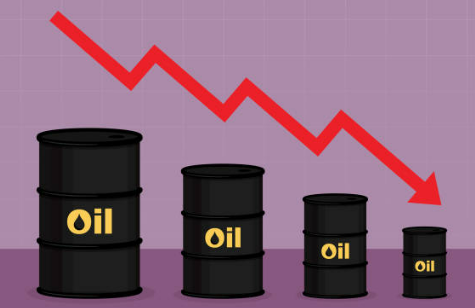
Skylar Williams
Nov 03, 2022 15:03

Oil prices retreated from a three-week high on Thursday, as poor economic data from China and the fear of rising U.S. interest rates hampered the outlook for demand.
Private study reveals that China's massive services sector fell for a second consecutive month in October, portending additional economic misery for the nation as it works to contain new COVID outbreaks.
This week, rumors of a possible loosening of COVID regulations improved attitudes toward China. This was shortly rectified, however, due to the lack of official information.
This year, when a sequence of COVID lockdowns halted local economic activity, China's declining crude consumption weighed on oil prices. In response to declining domestic demand, China has expanded oil export quotas while decreasing crude oil imports.
Brent oil prices fell 0.4% to $95.79 per barrel after surpassing $96 per barrel in the prior session, while West Texas Intermediate crude futures fell 0.6% to $84.44 per barrel as of 22:35 ET (02:35 GMT). The previous session's advances for both contracts were driven by data indicating a larger-than-expected decrease in U.S. inventories.
In contrast, the Federal Reserve significantly increased interest rates on Wednesday, with Chairman Jerome Powell hinting that rates may be higher than anticipated due to ongoing inflation.
Strength in the U.S. economy, which has thus far sustained consistent oil demand, gives the Fed greater room to continue raising interest rates.
The Bank of England is anticipated to boost rates by at least 75 basis points later on Thursday.
This year, rising interest rates imposed the strongest pressure on oil prices, as markets worried a global recession would substantially limit crude consumption. Higher U.S. interest rates also strengthened the currency, which increased the cost of commodities priced in dollars and decreased import demand.
In contrast, oil prices have gained momentum in recent months as a result of predictions of a tightening supply.
In addition to the U.S. inventory data, crude prices benefited from growing geopolitical tensions in the Middle East, as a report claimed that Iran intended to attack Saudi Arabia, a major oil producing nation. This condition would inevitably reduce the availability of oil.
The Organization of Petroleum Exporting Countries, which recently slashed output, has also vowed to support crude prices with more supply cuts if necessary. The cartel has lately revised its projections for medium- to long-term demand, indicating that the global move away from fossil fuels will take much longer than anticipated.

Nov 03, 2022 15:01

Nov 04, 2022 14:36